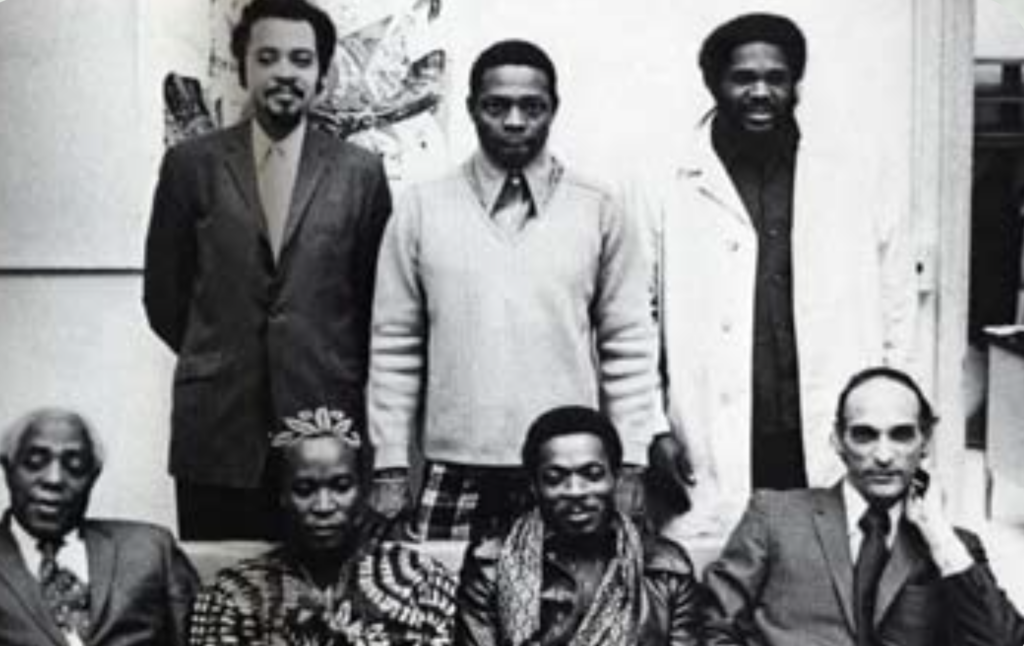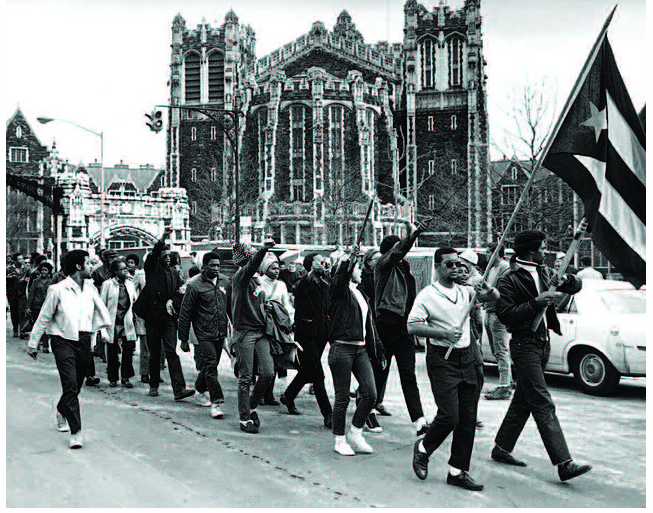From Black Power to Black Studies
Seven decades ago, the first Black Studies course was offered at The City College of New York. As a course in history only offered in the School of Education, the first Black Studies course was branded as Negro History and Culture but focused mainly on Africa. It was taught by the first Black faculty member at City College, Dr. Max Yergan.
In September 1970, after students demanded studies that were relevant to the Black experience, the Department of Urban and Ethnic Studies was established at CCNY.
Unsatisfied that the Department of Urban and Ethnic Studies could reflect fairly and accurately the Black experience, the student activists at CCNY demanded a formalized Black Studies Department. President Robert E. Marshak recommended to the college Faculty Senate to dissolve the Urban and Ethnic Studies and form four new departments, Puerto Rican Studies (Latin American and Caribbean Studies), Asian Studies, Afro-American Studies (Black Studies), and Jewish Studies, that the history and culture of Black people be reflected in the curriculum.

Photo courtesy of City College Archives
In the fall of 1972, the Black Studies Department, chaired by Professor Moyibi J. Amoda, was designed to articulate in intellectual and constructive terms the crucial life experience of people of African descent on the continent and in the Diaspora, and to serve as an intellectual base from which students and scholars could rigorously re-investigate and challenge commonly accepted misinterpretations, misrepresentations, and malicious distortions of the Black experience.
Today, no longer a department, the Black Studies Program objective is to provide knowledge to City College students reflecting on global African peoples’ participation in and contribution to the evolution, development and civilization of mankind.
From Puerto Rican to Latin American Studies
As a course in history only offered in the School of Education, the first Latin American History course was presented in the fall of 1936. Taught by Dr. Diffe, Latin American Civilization: Colonial Period and Latin American Civilization: Modern Period, embraced the period from the conquest through the wars of independence and focused on the development of the economic, social, political and cultural institutions of Latin America.

Photo courtesy of The New York Times
In fall 1970, as an outcome of demands from Black and Puerto Rican student activists for an appropriate program that was relevant to the Puerto Rican experience, the Department of Urban and Ethnic Studies was created. The department offered Puerto Rican Studies presenting Puerto Rican Heritage, Puerto Rican Folklore, and other courses. Puerto Rican students felt that the department was not responding to the needs of the Puerto Rican community with studies relevant to the Puerto Rican experience.
In 1972, the Puerto Rican Studies Department was created along with Black Studies, Asian Studies, and Jewish Studies departments through the demands of City College students. Through the demand of many Puerto Rican student activists, Puerto Rican Studies became a research center, a bilingual-bicultural program, and an applicable community program that would provide the creative input needed to function with high academic standards.
The department, chaired by Professor Federico Aquino-Bermudez, provided students with courses on the history and culture of the Puerto Rican in Puerto Rico and the United States, including the development of Puerto Rican personality, literature and family structure, included a research center.
Today a program, Puerto Rican Studies, now found in the Latin American and Caribbean Studies Department, is directed by Professor Iris Lopez.


